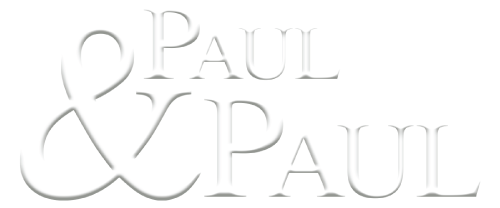A technology front-runner recognized for its long history of results, Paul & Paul has been at the forefront of technology law for many decades. Continuing in its enviable tradition, the firm’s dedicated and experienced intellectual property attorneys leverage their substantial backgrounds and years of experience with engineering backgrounds, data security and data privacy, computer science, and other scientific degrees to assist clients and help individuals, businesses, and institutions protect their ideas. With our lead counsel and knowledge of the laws, your patent rights and business will be protected and best represented.
The Paul & Paul team is dedicated to helping businesses and individuals protect their intellectual property, both domestically and abroad. Our firm’s experienced attorneys have deep knowledge of the United States Patent & Trademark Office’s (USPTO) regulations and procedures related to technology patents. With our extensive legal background and understanding of the complexities of technology law, we can assist clients with filing patent applications for new technological inventions. We have experience representing clients of all sizes—from startups to Fortune 500 companies—and strive to provide a cost-effective, tailored approach to each matter. If you are in need of assistance with a technology patent, contact us to discuss your options during a free consultation.

The patent attorneys of Paul & Paul have experience protecting the intellectual property assets and design patents of all clients, ranging from Fortune 500 companies to individual inventors.
Including: Automotive Devices, Friction Products, & Internal Combustion Devices
Including: Security & Access Devices, Biometric Readers, DNA, Stem Cells & Tissue Engineering
Including: Polymer Chemistry, Liquid Crystals & Packaging Materials
Including: Building Construction & Construction Technologies
Including: Computer or Processor-Controlled Devices, Consumer Products & Computing Devices
Including: Electrostatics, Power Systems, Electromagnetic Devices & Electrocoating
Including: Preservatives, Refrigeration Lubricants, Packaging & Production Processes
Including: Machinery, Equipment, Processes For Distilling, Refining, & Fuel Production
Including: Printed Circuit Board Cleaners, Software Development & Web-Based Technology
Including: Machinery, Power & Hand Tools, Manufacturing Equipment, Devices & Assemblies
Including: Hand Instruments, Implants, Prosthetics, Surgical Equipment & Biocompatible Materials & Devices
Including: Semiconductor Devices, Microprocessors, Memory Chips, Integrated Circuits, Transistors & Other Components
Including: Optical Lenses, Imaging Sensors, Camera Modules, Fiber Optics & Laser Equipment
Including: Detergents, Personal Care Products Including Beauty, Hair Care & Dental
Including: Polymers, Resins, Monomers, Alloys, Coatings & Other Powders, Pellets & Liquids
Including: Wind Turbines, Solar Panels, Fuel Cells, Electric Vehicles & Tidal Power
Including: Voice over IP (VoIP) Technologies, Wireless Networking & Communication Protocols
View our attorney profiles to learn more about our areas of professional experience & expertise.
We have first-hand knowledge and application across many industries and market sectors and can provide you with experienced technology law lawyers for almost any area in which you operate. Among our firms’ patent lawyers are former design engineers, production engineers, research scientists, and patent examiners. They understand technology. They understand innovation. They know intellectual property law. They know the legal issues and key considerations when it comes to patent applications and all related practice areas.
From the moment you file your patent application with the patent office, we do our due diligence and will guide you every step of the way. We will help you deal with the U.S. Patent and Trademark Office (the USPTO), and ensure that you are receiving the legal services that you need so every legal issue is addressed.
If you are looking for Pennsylvania technology lawyers that are ready to protect your patent rights, from the time of application through to potential litigation to protect your rights, look no further. For more information on our services including patent prosecution and patent litigation, or just legal advice on how to protect your intellectual property rights – contact the technology law lawyers at Paul & Paul today.
About Us
Contact Us
100 N. 18th Street, Suite 830
Philadelphia, PA 19103
Office: (215) 568-4900
Fax: (215) 567-5057
Email: info@paulandpaul.com
© 2023 All Rights Reserved | Paul & Paul